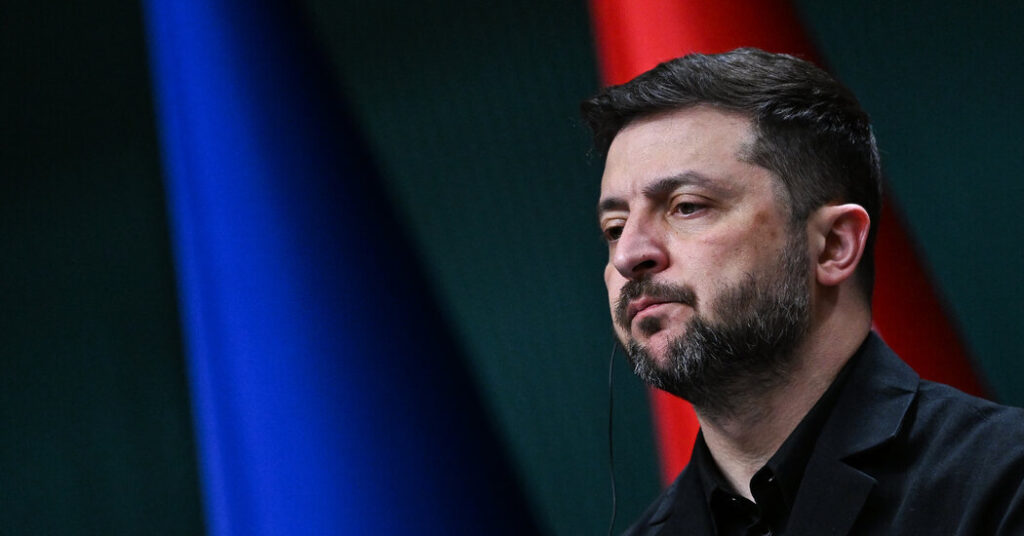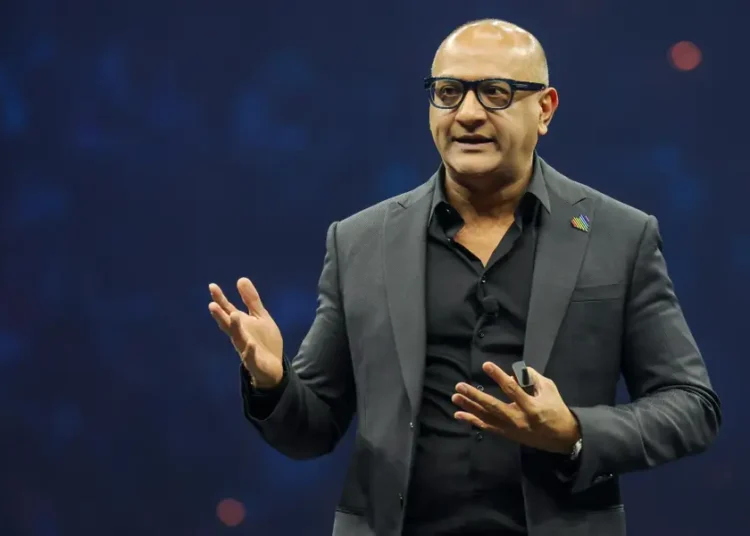To the Editor:
Re “Zelensky Will Engage on a U.S. Peace Plan” (news article, Nov. 21):
We shouldn’t be surprised that President Trump’s so-called peace plan to end the war in Ukraine is essentially a point-by-point capitulation to demands that President Vladimir V. Putin of Russia has been making since he first realized that a quick victory after the full-scale invasion in February 2022 would not be possible.
This conflict — an unjustified war initiated by a geopolitical bully — has created the worst carnage in Europe since World War II. Hundreds of thousands of Ukrainian soldiers and civilians have been killed or wounded. Total casualties to Russia’s mostly young fighters are estimated to be more than one million.
The mass murders, the unrelenting attacks on civilian targets and the kidnapping of tens of thousands of Ukrainian children by Mr. Putin’s forces have made Russia an international pariah.
President Volodymyr Zelensky of Ukraine acknowledged that deciding on the proposed plan amounted to “one of the most difficult moments in our history.” While most Ukrainians support a brokered end to the war, they also strongly oppose giving in to Russia’s irrational demands.
Ukraine’s sovereignty, security and democracy should all be nonnegotiable. A strong Ukraine is critical to the security of the United States and Europe. Mr. Putin, who has been charged by the International Criminal Court with war crimes, should not be rewarded with the proposed concessions — no matter what Donald Trump thinks might earn him that Nobel Peace Prize he has coveted since regaining the White House.
Irwin Redlener New York The writer is a research scholar at the School of International and Public Affairs at Columbia University and a founder of the Ukraine Children’s Action Project.
To the Editor:
Before President Trump goes any further with his “peace” plan for Ukraine, would someone at the White House please tell him about Neville Chamberlain, the British prime minister who ceded the Sudetenland region of Czechoslovakia to Hitler in 1938, and explain to the president why he should not want to be compared to him?
Mark Weston Sarasota, Fla.
A Global Deficit of Democracy
To the Editor:
Re “Foreign Aid Is Mostly Gone. It Could Be Replaced With Something Better,” by Rajiv J. Shah (Opinion guest essay, nytimes.com, Oct. 13):
Dr. Shah is right to highlight the immense moral and human rights failures of the United States, Canada, Britain, Germany and other countries that have made drastic cuts to lifesaving international aid. They will likely lead to millions of premature deaths, particularly from AIDS.
It’s also true, and encouraging, as Dr. Shah points out, that many developing countries are now taking greater control of their own development trajectories, less encumbered by the often self-serving aims of development aid funders and freer to directly serve the needs and the welfare of their citizens.
However, Dr. Shah does not address the urgent challenge posed by the increasing deficit of democracy in the developing world. As in the United States and Europe, democracy in the developing world is under attack. Authoritarians have been emboldened in countries like Venezuela and Nicaragua, and in many parts of Africa and Asia, where systemic corruption is common and the human rights and freedoms of citizens are routinely violated.
Sustainable development requires fundamental freedoms and durable democracy. In these times of global democratic precarity we must recognize that development without democratic freedoms, citizen participation and good governance will be neither enduring nor just.
Noam Schimmel Berkeley, Calif. The writer is a lecturer in development studies at the Goldman School of Public Policy at the University of California, Berkeley.
My Phone Is Sad. I’m Not.
To the Editor:
Re “Your Phone Doesn’t Have to Be Your Enemy,” by Steven Barrie-Anthony (Opinion guest essay, Nov. 13):
It’s my phone that’s experiencing grief, not I. My phone is sad and envious — envious of its smartphone brothers and sisters. They get to travel to exotic places! Give lifesaving advice — sometimes even to very famous people!
Whereas, because it had the great misfortune of being bought by a Luddite and technophobe, my smartphone sits forlornly in a dark drawer, never taken anywhere. Worse, it’s turned off for months at a time, with all of its many apps (none requested by the owner but somehow there anyway) completely ignored.
Is it any wonder that my phone experiences envy and existential sadness?
I, on the other hand, am happy as a clam.
Nancy Stark New York
The post Don’t Push Russia’s Bad Deal on Ukraine appeared first on New York Times.




